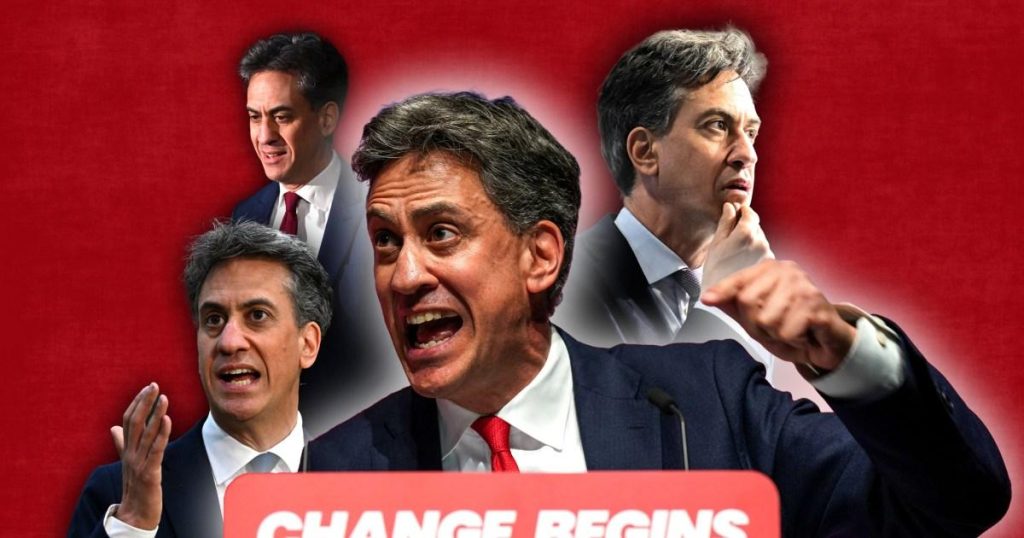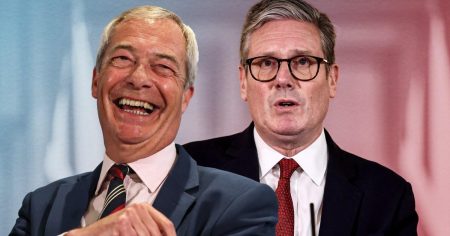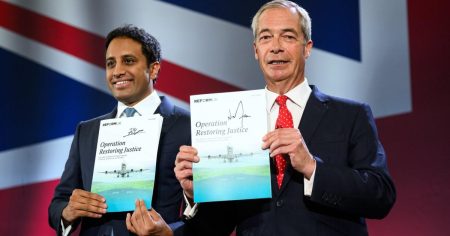Ed Miliband, the former Labour Party leader who resigned after the 2015 general election, has re-emerged as a prominent figure in UK politics, serving as the Secretary of State for Energy Security and Net Zero in Keir Starmer’s cabinet. While his time as leader may be viewed by some as a bygone era, predating Brexit, Trump, and the Covid pandemic, Miliband remains committed to public service, believing he still has a valuable contribution to make. His current focus is on the ambitious goal of decarbonizing the UK’s power system by 2030, an undertaking he approaches with evident passion. He is spearheading efforts to accelerate clean energy projects, navigating the complex interplay between government regulation, private sector investment, and community impact.
Miliband’s tenure as energy secretary has been marked by a decisive push for renewable energy sources and a commitment to overhaul planning processes to expedite the transition to a cleaner energy future. His recently unveiled Clean Power 2030 Action Plan outlines the strategic steps required to achieve the ambitious decarbonization target, emphasizing not only the environmental benefits but also the economic opportunities associated with green energy. Miliband anticipates that the plan will yield tangible results by the end of 2025, including lower energy bills, enhanced energy security, job creation, and reaffirming Britain’s leadership in addressing the climate crisis. This focus on the environment resonates particularly with younger generations, raising the question of whether the “Milifandom,” a largely online fanbase that emerged during his leadership bid, might see a resurgence.
The political landscape has drastically shifted since Miliband’s time as party leader. Many of his contemporaries, including George Osborne, David Cameron, and Nick Clegg, have left the political arena. Despite the changes, Miliband remains steadfast in his commitment to public service. The energy brief, though not traditionally considered a high-profile position, has gained significant attention under Miliband’s leadership, reflecting the growing urgency of the climate crisis and the need for decisive action. His dedication to this complex challenge is palpable, as evidenced by his frequent appearances at project sites and his emphasis on community engagement.
Miliband’s political journey has been marked by both highs and lows. He has weathered criticism and endured the scrutiny that comes with being a party leader, experiences that have undoubtedly shaped his perspective and approach to his current role. He has also demonstrated a capacity for self-deprecating humor, as evidenced by his response to a recent quip by Health Secretary Wes Streeting, who jokingly suggested that Badenoch’s political trajectory might lead her to the energy secretary position in a decade. Miliband’s good-natured response, referencing a previous awards ceremony where he had poked fun at himself, speaks to his resilience and ability to navigate the often-turbulent currents of political life.
The 2015 general election, the event that precipitated Miliband’s resignation as Labour leader, was also a significant day for other emerging political figures. It marked the entry into Parliament of Rishi Sunak, Boris Johnson, and Keir Starmer, all of whom would later ascend to the position of Prime Minister. Five years later, it was Starmer who appointed Miliband to his shadow cabinet and subsequently to his cabinet, demonstrating a recognition of Miliband’s experience and policy expertise. The political trajectories of these individuals, intertwined by that pivotal election day, underscore the dynamic and often unpredictable nature of political careers.
Miliband’s current focus on decarbonization represents a significant shift from the political debates that dominated his time as leader. The pre-Brexit, pre-Trump era feels distant, yet the challenges of climate change and energy security have become increasingly pressing. Miliband’s commitment to addressing these challenges underscores his belief in the importance of long-term vision and decisive action. His efforts to accelerate the transition to clean energy are not just about meeting targets but about transforming the UK’s energy infrastructure and securing a sustainable future. While the “Milifandom” may have evolved, his dedication to public service remains a constant, driven by a desire to contribute to positive change.











